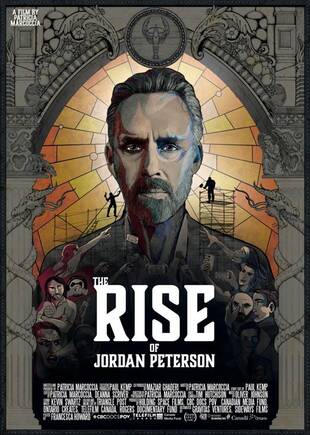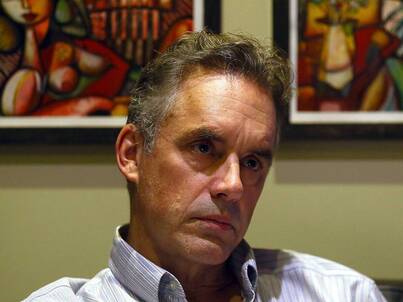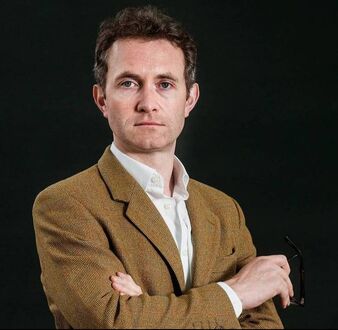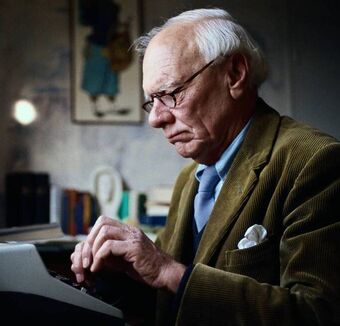 LONDON, ONTARIO – My wife and I met as fellow students in film class in high school. For our very first date in January of 1971, we saw Five Easy Pieces at the Hyland Theatre. As a pastime, the claim could be made that going to the movies is built into the most primary strands of our connubial DNA. And one of the ways we commemorated our 40th wedding anniversary was to buy one of those nameplate plaques which they affix to the arm of a cinema chair in a scheme that the re-opened Hyland came up with to help pay off the heart-stopping cost of their new projector. But nearly half a century into our relationship with the movies and each other, we do have to acknowledge that we simply aren’t knocking back new flicks at the rate that we used to. No longer members of any of the prime demographics for whom most movies are made, nowadays the vast majority of new releases goes cascading right past us without evoking even a smidgen of curiosity. So perhaps we shouldn’t have been so surprised on the last Monday night in October to realize that we were heading out to partake of what would only be our third movie-going experience of 2019. Some elementary computation revealed that we were averaging one movie every one hundred and three days. I mean, how pathetic is that? How completely out of touch with the contemporary zeitgeist had we managed to become? Perhaps we should do the honorable thing and tear up and mail back our lifetime membership cards in the Cineaste’s Guild before they come around to the house demanding their forfeiture. The first movie we saw this year, back in the spring at the Hyland, was Steve Coogan and John C. Reilly’s sublime, sepia-toned portrait of Laurel & Hardy’s last days, Stan & Ollie. It’s a remarkably gentle film which pays huge dividends if you can shed the contemporary expectation of humour in the service of malice or contempt and give yourself over to a lovingly constructed period piece that conveys an Edenic moment in cinematic history when rapt attention could be held - and copious laughter summoned – by nothing more edgy than affection, whimsy and some astonishing interludes of physical coordination and grace. For the other two films, we had to venture out of our Hyland home-patch and make our way to the Silver City Cineplex at Masonville. The July 15 Hermaneutics gave a preview of the first of these films, Unplanned, about the corruption that riddles the operations of Planned Parenthood in the United States.  Jordan Peterson Jordan Peterson And the screening we attended last Monday was The Rise of Jordan Peterson. This feature-length film grew out of a one-hour documentary that was aired on CBC Newsworld about a year and a half ago and does an excellent and even-handed job (which is to say ample input from his critics is included) of outlining the global impact of this stalwart psychology professor from the University of Toronto who stood up against government-compelled speech regarding preferred pronouns for the transgendered and thereby detonated a controversy about the threat to freedom of speech that is posed by the swelling forces of political correctness and identity politics. And, as luck would have it, on March 19 of 2018, one of the earliest Hermaneutics posts was devoted to Jordan Peterson’s galvanizing crusade. But here’s the interesting thing about these two recent movies; an alarming development that is unprecedented in our long movie-going experience. Both of these eagerly anticipated films which drew packed and even sold out houses when they finally turned up, had their debut screenings delayed for weeks and months because of the intimidating protests and ginned-up smears which greeted their initial release.Though we are of a sufficiently pugnacious temperament as to not mind being publicly seen supporting a movie which certain milksops would like to shut down, I imagine there are those of fainter hearts who could be dissuaded from attending because they didn't want to run that very same risk. And good on the management at the Masonville Cineplex for having the backbone to override such craven bullying and screening both of these worthwhile movies. This creeping climate of intolerance and shunning – in which self-appointed judges of what is politically acceptable attempt to prevent others from seeing, hearing, reading or thinking anything that doesn’t accord with their own recently-hatched delusions of social justice – is very much part of the smelly new orthodoxy that Peterson has been pushing against in his brave and carefully articulated way. To watch him navigate his way through an interview with an insincere inquisitor intent on misconstruing his every word and intention (and there are dozens of these freely available on the interwebs; none more revealing than his bout in early 2018 with the BBC’s Cathy Newman) is to take a sort of masterclass in how to keep your cool, stay on track and avoid dialectical landmines. The firestorm of notoriety and controversy which has engulfed Peterson for three dangerously stressful years, has taken him and his inspiring message – which, in a nutshell, could be formulated as, “Do not be cowed by hectoring lobbyists who do not wish you well” – to packed lecture halls all around the world and to the top of international bestseller lists with his 12 Rules for Life: An Antidote to Chaos. As he confesses with a sheepish grin in one of this film’s funniest clips, “I seem to have accidentally found a way to monetize the outrage of social justice warriors.” It is interesting that this film should come along just as Peterson has stepped back in recent months from the media melee to tend to his wife during a period of medical peril and to replenish his own depleted stocks of energy and strength. One apparent sign of the strain which his notoriety was exacting, was Peterson’s propensity to tear up when discussing the gratitude which so many – but particularly young men – have expressed to him for helping them sort out their primary relationships and goals, and dare to hope that they could live lives of honour and purpose. Peterson is not a sappy man, given to gushing at easily expressed bromides of personal reform. His tears express his own sense of unworthiness and a kind of horrified pity to see how beaten down some of his biggest fans have been. Like watching a starving man devour a proffered husk of bread, he is appalled that the simple encouragement which he offers to these routinely dismissed and derided people, is clung to with such grateful fervor. A new and lower-keyed interview with longtime Peterson champion Rex Murphy which was posted a couple of weeks ago, is the first fresh word we’ve had from him since the spring and seems to signal (or do I just hope it does?) a less frenzied level of engagement going forward which will hopefully allow him to spend less time dodging spiteful missiles in the chaotic courts of public opinion and more time in undistracted study. I would particularly welcome a resumption of his profoundly meaty lectures on the psychological significance - and civilizational buttressing - which can be found in the stories of the Old Testament; a series which he was obliged to leave off at the conclusion of the Book of Genesis when he was suddenly carried away by the whirlwind of madly escalating fame. Salivating Christians sensing a conversion that surely must be imminent, have regularly badgered Peterson at Q&A sessions about when he's going to climb down off that fence. In its lack of nuance and yes-or-no bluntness, the question frankly exasperates him. In an interview on his Catholic webcast two years ago, the much subtler Patrick Coffin got Peterson to say he would be giving three years to the process of examination and discernment and would not be rushed into anything. ("Ah, just like Christ in the wilderness," said some of his more zealous and ever-hopeful fans.) Then early this year in what struck me as a slightly ill-tempered Australian lecture (jet lag, perhaps?), he was talking as if he'd definitively decided no, saying the 'hubris' and 'arrogance' of claiming discipleship was too much for him. When I heard that I thought it sounded like he was mistaking a contract for a diploma. Anyone who's studied religious texts with any kind of diligence has got to know that discipleship isn't about being awarded for being such a perfectly wonderful chap. It's about admitting your weakness and your need for help and still agreeing to take up your cross and struggle every day to do better. And that's a formulation that sounds to me like it's right up Peterson's alley. I simply can't believe that a man as insightful as Peterson will let the matter end there. As Jordan Peterson has stepped back a little from the limelight, English writer, editor and social historian, Douglas Murray, has stepped forward, tirelessly working the talk show, webcast and lecture hall circuit over these last couple months to promote his just-released study of the social havoc being caused by the four most pernicious of the leftist identity groups. These he tersely identifies in the four major chapters of his book as ‘Gay,’ ‘Women,’ ‘Race’ and ‘Trans’.  Douglas Murray Douglas Murray “We are going through a great crowd derangement,” begins Douglas Murray in The Madness of Crowds: Gender, Race and Identity. “In public and in private, both online and off, people are behaving in ways that are increasingly irrational, feverish, herd-like and simply unpleasant. The daily news cycle is filled with the consequences . . . “Identity politics has become the place where social justice finds its caucuses. It atomizes society into different interest groups according to sex (or gender), race, sexual preference and more. It presumes that such characteristics are the main, or only, relevant attributes of their holders and that they bring with them some added bonus. For example (as the American writer Coleman Hughes has put it), the assumption that there is ‘a heightened moral knowledge’ that comes with being black or female or gay.’ It is the cause of the propensity of people to start questions or statements with ‘Speaking as a . . .’ And it is something that people both living and dead need to be on the right side of. It is why there are calls to pull down the statues of historical figures viewed as being on the wrong side and it is why the past needs to be rewritten for anyone you wish to save.” While Peterson is the more psychologically probing and astute lecturer of the two, I believe Murray is the better writer, more adept at marshaling his evidence and arguments on the page in a crisp and persuasive way. In addition to calling attention to the individual lives that are harmed or destroyed when disfavored classifications of people get written off in the power-grabbing skirmishes of identity politics, both thinkers and writers also discern the even larger destruction under way as the very foundations of Western civilization such as the rule of law, the presumption of innocence, privacy rights and freedoms of conscience, speech and religion are concomitantly eroded. In his equally disturbing bestseller from 2017, The Strange Death of Europe, subtitled, Immigration, Identity, Islam, Douglas Murray diagnosed Europe's imploding sense of itself. Wracked by feelings of guilt for past excesses of imperialistic chauvinism, many contemporary Europeans are unable to take sustenance from the historic and religious narratives that originally shaped their countries. Ashamed of their past and estranged from such a desiccated present, many citizens and leaders have thrown in the towel and thrown open their borders to encroaching, dispossessed multitudes that harbour no more regard for the glory that was Europe than their increasingly decadent hosts. And Murray, it turns out, is just as haunted as Peterson by God and a faith that he cannot personally take up. Though faith is beyond them, they both recognize its civilizational utility. The closest thing to hope that Murray held forth at that earlier book’s conclusion – and it was a very damp squib indeed – was that European secularists should stop sniping at that minority which still upheld Europe’s Judeo-Christian foundations. This should be done, he wrote, “not least because we may yet face far clearer opponents not only of our culture but of our whole way of living . . . Unless the non-religious are able to work with, rather than against, the source from which their culture came, it is hard to see any way through. After all, though people may try, it is unlikely that anyone is going to be able to invent an entirely new set of beliefs. In the absence of anyone coming up with a wholly new faith system . . . we lose our ability to talk of truths and meaning.” And in The Madness of Crowds Murray once again posits a return to some sort of religious adherence as the only possible antidote to the soul-rotting acid of identity politics and holds even less hope in this case that it can be achieved. Referring to a lecture by Hannah Arendt he writes, “Just as the only tool to protect against unpredictability is some ability to make and keep promises, so Arendt says only one tool exists to ameliorate the irreversibility of our actions. That is ‘the faculty of forgiving’ . . . In some manner with which we still haven’t even begun to wrestle, we have created a world in which forgiveness has become almost impossible, in which the sins of the father can certainly be visited upon the son . . . “As one of the consequences of the death of God, Friedrich Nietzche foresaw that people could find themselves stuck in cycles of Christian theology with no way out. Specifically that people would inherit the concepts of guilt, sin and shame but would be without the means of redemption, which the Christian religion also offered. Today we do seem to live in a world where actions can have consequences we could never have imagined, where guilt and shame are more at hand than ever, and where we have no means whatsoever of redemption. We do not know who could offer it, who could accept it, and whether it is a desirable quality compared to an endless cycle of fiery certainty and denunciation.”  Malcolm Muggeridge (1903 – 1990) Malcolm Muggeridge (1903 – 1990) Recently rooting around in Things Past, an anthology of Christian apologist Malcolm Muggeridge's occasional prose that my friend (and Muggeridge's first biographer) Ian Hunter compiled in 1978, I came upon a now almost fifty year old essay which originally appeared in Esquire magazine in 1970. The Great Liberal Death Wish, Muggeridge called it and it opens thus: "Searching in my mind for an appropriate name for the seventies, I settle for The Decade of The Great Liberal Death Wish. It seems to me that this process of death-wishing, in the guise of liberalism, has been eroding the civilization of the West for a century and more, and is now about to reach its apogee. The liberal mind, effective everywhere, whether in power or in opposition, particularly so during the present period of American domination, has provided the perfect instrument. Systematically, stage by stage, dismantling our Western way of life, depreciating and deprecating all its values so that the whole social structure is now tumbling down, dethroning its God, undermining all its certainties and finally mobilizing a Praetorian Guard of ribald students, maintained at the public expense, and ready at the drop of a hat to go into action, not only against their own weak-kneed, bemused academic authorities, but also against any institution or organ for the maintenance of law and order still capable of functioning, especially the police. And all this, wonderfully enough, in the name of the health, wealth and happiness of all mankind. Previous civilizations have been overthrown from without by the incursion of barbarian hordes; ours has dreamed up its own dissolution in the minds of its own intellectual elite." Yes, you might want to tweak a detail or two here and there to make it more applicable half a century later. For instance, Muggeridge was right to finger the university as the epicentre of this destabilizing rot. But I wonder if he'd be surprised today at the extent to which such self-loathing thinking has been taken up by governments, the mass media and the corporate world? Still, he's unquestionably tracking an earlier iteration of the same resentment-driven tribal politics that Peterson and Murray are calling out today. And St. Mugg provides us with a helpful reminder - both depressing and somehow reassuring - that what might seem like a sudden apocalypse is actually a social cataclysm that has been dragging on for decades and decades. On the one hand this underscores the need to never relax our vigilance. And on the other it tells us that even now, it's probably not too late to take up the struggle and push back.
1 Comment
Max Lucchesi
10/11/2019 06:59:16 am
I still cant get my head around lady actors or chairpersons, or political correctness or gender politics but hey I can reluctantly live with it all. I don't consider myself a liberal trying to undermine western culture or a victimised white male wanting to return western society to the safety of the social norms of the 1950s. My name is derived from Lucca, one of the original Tuscan city states, I was born and have lived in Tuscany so do tell about western civilisation. I remind you of Priestley's play 'An Inspector calls' underlining the upper class lack of social responsibility, yet you quote old Etonian Islamophobic
Reply
Your comment will be posted after it is approved.
Leave a Reply. |
HERMANEUTICS
If you would like to contribute to the ongoing operations of Hermaneutics, there are now a few options available.
ALL LIFE IS A GIFT :
THE IMPORTANCE OF TRADITION :
Archives
June 2024
Categories
|


 RSS Feed
RSS Feed